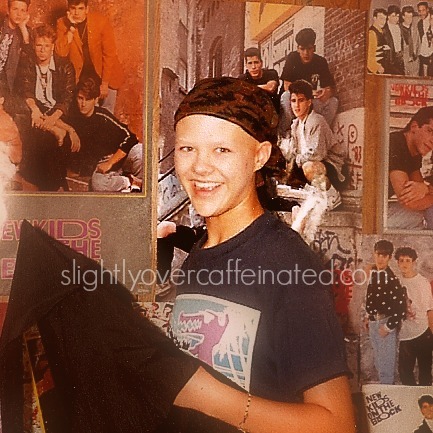We are told we can make choices in our lives that make us less prone to developing cancer. We are told that many cancers are preventable. And while this is being said, what is not really being said, but is absolutely true, is this: cancer just happens sometimes and it's not your fault.
Having cancer as a teenager complicates an already complicated time. Not that there is a good time to have cancer, but younger children who have cancer do not yet know enough about life and the world to grasp the full weight of the illness, and adults who are diagnosed are already well versed in the responsibilities of life and how things work. Teenagers (and maybe also young adults) are in a purgatory between these two worlds.
I was diagnosed with a rare form of ovarian cancer, dysgerminoma, when I was 15. Since the release of the book and movie The Fault in Ours Stars, the main characters of which are teens with cancer, people are talking more about teen cancer than they were 25 years ago when I was being treated, but it's still not enough.
As someone who never knew another teen with cancer at the time I was being treated, I can say we need to see teens and young adults affected by cancer portrayed in books, TV shows, and movies. To have been able to see someone that I could identify with at the time, even a fictional character, would have been so validating for me. Having cancer is a very isolating experience, especially when you are treated at a children's hospital and all the other patients are half your size.
With no troubles in their lives, some teens have the luxury of remaining fairly dependent on being dependent and blowing through their teen years. They may not mature until their late teens or early twenties. Facing a life or death situation eliminates that option. During my cancer treatment when I was 15, I had to suck it up and get on with things. I needed to have an awareness of what my doctors were talking about, what my nurses were doing, and know when I needed to ask for help during my hospital stays. I had to keep a positive attitude and embrace humor to get me through the experience.
In The Fault In Our Stars Hazel and Augustus meet at a support group for teens who are being treated or have finished treatment for various cancers. Nothing like that existed for me in 1990. Although there were activities at the hospital, they were geared towards younger kids so I mostly stayed in my room and watched MTV. We lived two hours from the hospital, which meant in the weeks between chemo treatments there wasn't an opportunity for me to connect with other teens with cancer who might also be receiving treatment at the same hospital. Lucky for the small Arkansas town I lived in, there were no other kids with cancer at the time.
To have had cancer friends who "get it" like Hazel and Augustus did would have been such a life line. The teenage years are so odd anyway; you are trying to figure out your educational future, your social situation, how you feel about yourself. Adding cancer to that list makes life... more interesting than necessary.
Teens and young adult diagnosed with cancer need more opportunities to meet, in and out of treatment. We learned medical terminologies we were too young to know and had chemicals that made us sick put in our bodies to chase out our original sicknesses. We were young and well and naive, and then too suddenly we were not. It should not be so difficult for us to find others who get that.
Our needs are unique and must be addressed separately.
There are precious few hospitals in the US that address these needs. With teen cancer patients being a relatively small contingent of the larger cancer patient population, groups to rally and support the cause are rare as well.
And what of the survivors of teen and young adult cancers? We are among you, living our lives, getting married, having children, and possibly still struggling with weird health issues that no one understands. And we aren't sure if it's OK to talk about our cancer pasts with you.
We don't have the answers either. Just scars. And those aren't super helpful.

